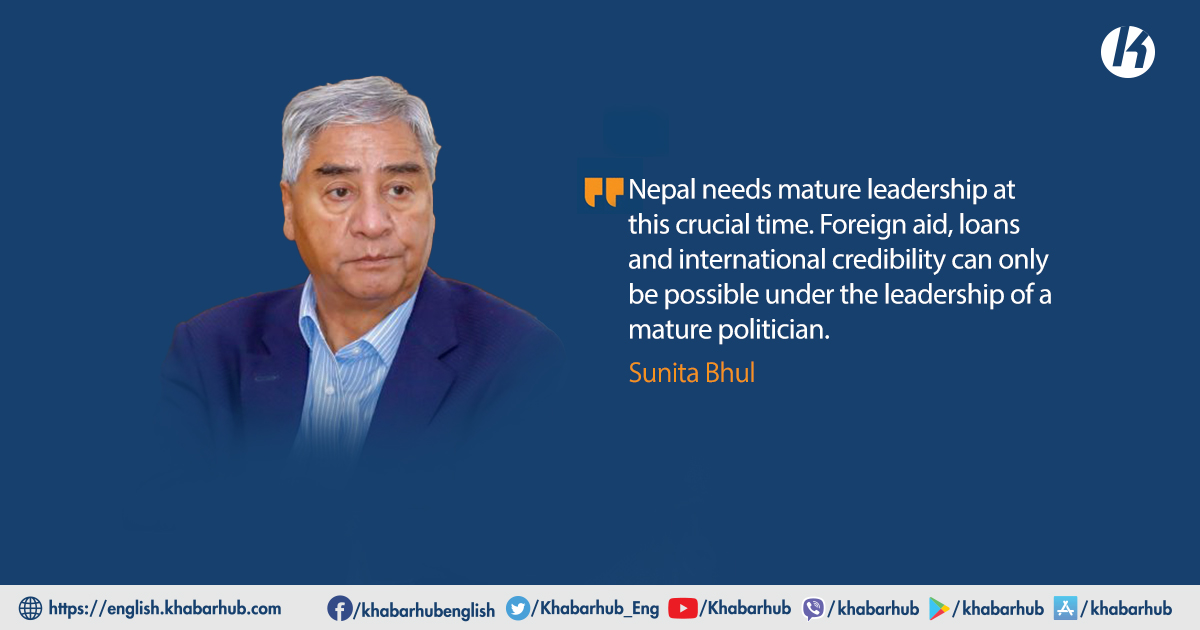KATHMANDU: Nepali Congress (NC) President Sher Bahadur Deuba, who was elected the Parliamentary Party (PP) leader of NC, will most probably lead the government for the first two years before transferring the reins of the government to Maoist Chairman Pushpa Kamal Dahal “Prachanda”.
Leaders close to Deuba say he sticks to his promises. Therefore, it is most likely that Prachanda will become the Prime Minister after two years.
What has to be understood is that the number of seats of the five-party coalition is favorable for political stability.
But if Prachanda becomes the prime minister with the support of CPN-UML, the government will topple and as a result, other parties in the coalition may start withdrawing their support to the government.
This means that the country would head toward mid-term polls.
Observers have to note that Deuba’s premiership for the first two years of the government is a must since Nepali Congress has been established as the largest party in the parliament in the November 20 election.
Moreover, international support and relations, too, play an important role in the current situation when the country is facing an economic crisis.
The parties in the ruling coalition should work toward fulfilling people’s aspirations and if they did not do so, it would not only be unethical but deceitful on their part by keeping in view the emergence of the Rastriya Swatantra Party as a sign of dissatisfaction of the people towards the major parties.
The country needs foreign aid, loans and international credibility, which can only be possible under the leadership of a mature politician like Deuba.
What is to be noted is that Prachanda himself has earlier expressed the commitment that the current alliance will last for 15 years, and that he would not leave the alliance even if he did not become the Prime Minister.
Prachanda understands that if the alliance collapses, the country will face a political and economic crisis which may then lead to political polarization. Therefore, both Deuba and Prachanda should use their political wisdom and act accordingly.
Since it is most likely that the coalition would continue, the priority should be economic development and the country’s prosperity.
Both Deuba and Prachanda should recall their commitments to the people before the election and maintain their political credibility by taking into account the fact that they issued a joint statement even after the election.
Therefore, Deuba should lead the first two years and hand over the reins to Prachanda.
He (Prachanda) should instead work on the minimum common program and power sharing in order to provide relief to the common citizens and deal with the current crisis dogging the country.
Even if Prachanda broke the alliance and joined another coalition for the sake of the Prime Minister, that would be nothing but ignoring public opinion.
What is clear is that the election results have opened the opportunity for the Nepali Congress to lead the government by giving continuity to the coalition.
Moreover, the November 20 election results have also shown the necessity and relevance of the current coalition to ensure that the country does not plunge into a political disaster.
The parties in the ruling coalition should work toward fulfilling people’s aspirations and if they did not do so, it would not only be unethical but deceitful on their part by keeping in view the emergence of the Rastriya Swatantra Party as a sign of dissatisfaction of the people towards the major parties.
Political stability in the country is mandatory to address the current economic crisis.
Therefore, Prachanda should not make haste in becoming the Prime Minister but rather remain patient and give leadership to Deuba for at least two years.
He (Prachanda) should instead work on the minimum common program and power sharing in order to provide relief to the common citizens and deal with the current crisis dogging the country.









Comment